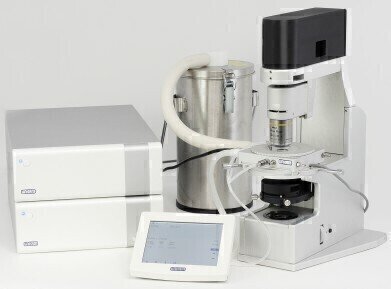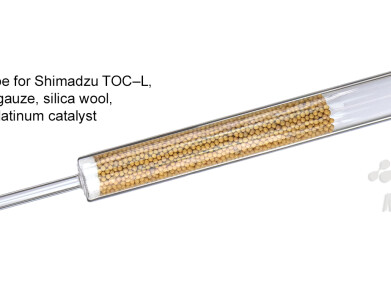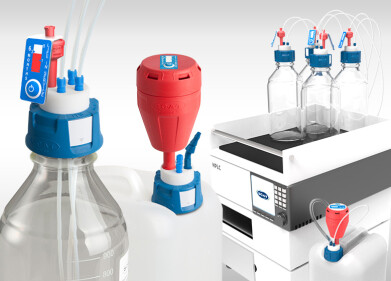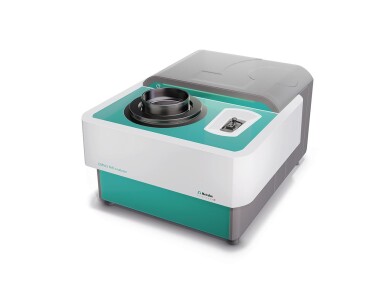Laboratory Products
Report on results using Thermal Analysis by Structural Characterisation to Characterise Pharmaceutical Systems used in Drug Delivery
Jun 09 2015
Linkam Scientific Instruments are working in partnership with the School of Pharmacy at the University of East Anglia to evaluate a new analytical technique known as TASC - Thermal Analysis by Structural Characterisation.
Dr Sheng Qi is a senior lecturer in pharmaceutics in the School of Pharmacy at the University of East Anglia. Sheng's current research interests focus on gaining a fundamental understanding of the behaviour of drug-polymer/lipid dispersions in solid (phase behaviour) and liquid (in biological fluids) states. She is also developing new approaches for stabilising supersaturated drug dispersions.
TASC is offered on Linkam's new DSC600 VISTA hot stage which enables images of samples to be simultaneously captured during an experiment. An image processing software module from Cyversa1 analyses these images to produce thermal curves based upon the changes in sample surface features observed during the experiment. The image analysis produces curves that are complimentary to DSC and enable the characterisation of melting, softening and even dissolution behaviour by tracking features observed on the surface of the sample as it is heated or cooled.
Initial results have shown a significant increase in sensitivity over conventional DSC as can be evidenced by the two sets of curves below. The results are very reproducible too. PhD student, Muqdad Alhijjaj, has performed multiple tests with both placebo and heterogeneous samples. With the undoped material (placebo), he obtained results comparable to the precision and accuracy of normal DSC. With more heterogeneous samples, he has developed an error bar algorithm to indicate the level of heterogeneity within the system, again showing excellent reproducibility.
In a series of drug loaded polymer samples, TASC detects in a highly reproducible and consistent manner, a double transition which conventional DSC detects as only one. Initial interpretation of this data is the subject of ongoing work but the behaviour is tentatively ascribed to the melting of different crystal forms.
As Dr Qi observed, “Since starting to use the technique, we have been surprised with the simplicity of the process. It is so easy to extract information from the TASC – hot stage system. TASC enables highly localised analysis of clearly identified sample features on the micro scale as well as measurements over much larger areas. In this way, it provides a unique tool for studying heterogeneity. We have also found it can detect subtle transitions that conventional techniques like DSC cannot discern. We will be extending the range of measurements that this visual approach to thermal analysis can provide. In this way a new toolbox for materials characterisation will be created.”
Digital Edition
Lab Asia 31.2 April 2024
April 2024
In This Edition Chromatography Articles - Approaches to troubleshooting an SPE method for the analysis of oligonucleotides (pt i) - High-precision liquid flow processes demand full fluidic c...
View all digital editions
Events
Apr 22 2024 Marrakech, Morroco
Making Pharmaceuticals Exhibition & Conference
Apr 23 2024 Coventry, UK
Apr 23 2024 Kintex, South Korea
Apr 23 2024 Seoul, South Korea
Apr 24 2024 Jakarta, Indonesia













.jpg)




